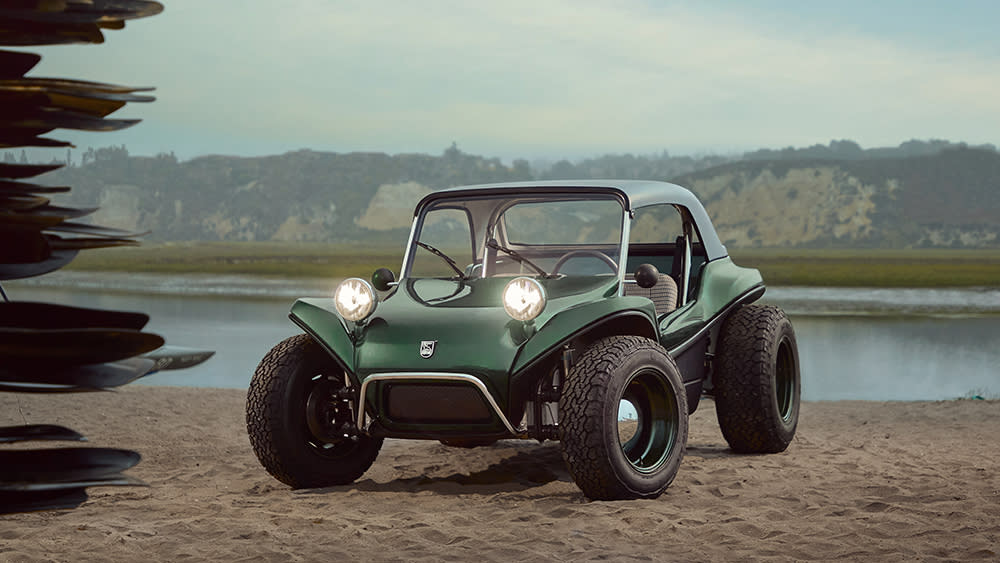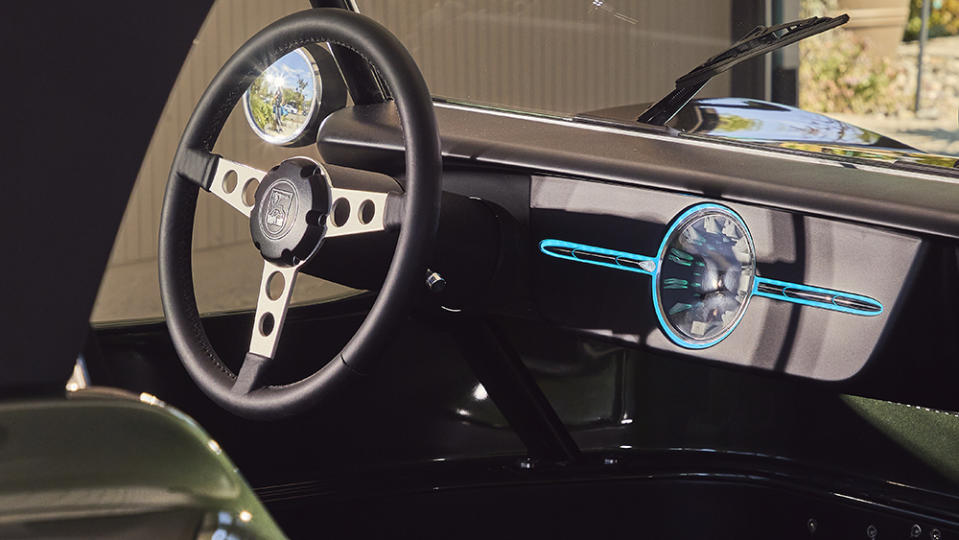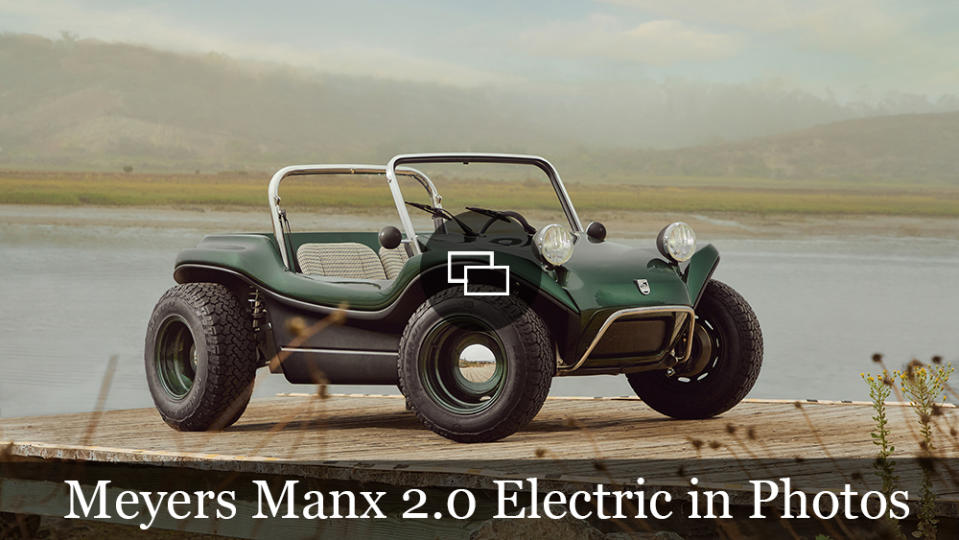Meyers Manx Reimagines Its Groundbreaking ’60s-Era Buggy as a Beach-Ready EV

Nearly six decades ago, an enterprising Bruce Meyers conjured a custom vehicle that transformed VW components into go-anywhere dune buggies. The creation was dubbed Meyers Manx, and the modular, customizable rig made waves in 1967 by busting speed records in Baja California and winning the inaugural Mexican 1000 (later known as the Baja 1000). The grassroots buggy not only won over offroad racers, but it also made a splash in Hollywood when it was driven by Steve McQueen and Faye Dunaway in The Thomas Crown Affair and Elvis Presley in Live a Little, Love a Little.
What began as a Southern California fixture emerged as a cultural icon. But with explosive growth came imitators—more than a quarter million, according to the Historic Vehicle Association, officially branding Manx “the most copied vehicle in history.” The rampant theft led Meyers’s “visualization of friendship and love” to end in frustration. But decades later, after a fresh dose of inspiration, he chose to reinvigorate the company.
More from Robb Report
As fate would have it, a budding young car enthusiast fell in love with the marque when his family rented Manxes while vacationing in Hawaii. An ocean away, the future designer of landmark vehicles including the Audi TT and Porsche 959 grew up admiring the life and lifestyle of Bruce Meyers, who lived nearby in Newport Beach. Those forces coalesced when the enthusiast, Phillip Sarofim, acquired the Meyers Manx brand in 2020, appointing the designer, Freeman Thomas, as CEO.

Evan Klein courtesy of Meyers Manx
On a clear summer evening in Malibu, Sarofim and Thomas unveiled the first reimagining of the groundbreaking buggy: the Meyers Manx 2.0 Electric. With a feathery curb weight of 1,500 pounds, its proportions are identical to the original. The only shared part is a headlamp housing. The EV Manx will come with a standard 20 kWh battery and 150 miles of range, or an optional 40 kWh unit that delivers 300 miles. The lithium-ion pouch cells are packaged adjacent to two motors and an inverter, while the gear train tucks beneath the rear bodywork, which was sculpted around an air-cooled engine in the original. Rooting the new model in heritage was the original Meyers Manx circa 1964, which was displayed nearby.
“For me, the Meyers Manx has always had this elusive spark—it’s an antidote to the complexity of life, a holiday or break,” Sarofim said at the reveal of the electric model. “I’ve had Manxes in my life since my teens and I can tell you that the feeling of escape you have when driving one is very, very real, and most interestingly, reaches far beyond the car itself.”
Parked against the same Southern California sky that framed Bruce Meyers’s pioneering efforts decades ago, the new EV model manages to tip a hat to the past while embracing the future.
The Meyers Manx EV’s first 50 customers will join a Beta program when they take delivery of the new 2.0 model in 2023, sharing feedback with the carmaker as they refine the production version. While this highlights there may still be work to be done, it also suggests that embracing a DNA hotwired to optimism goes a long way toward building a sunny future.
Click here to see all of the photos of the Meyers Manx 2.0 Electric.

Best of Robb Report
Sign up for Robb Report's Newsletter. For the latest news, follow us on Facebook, Twitter, and Instagram.